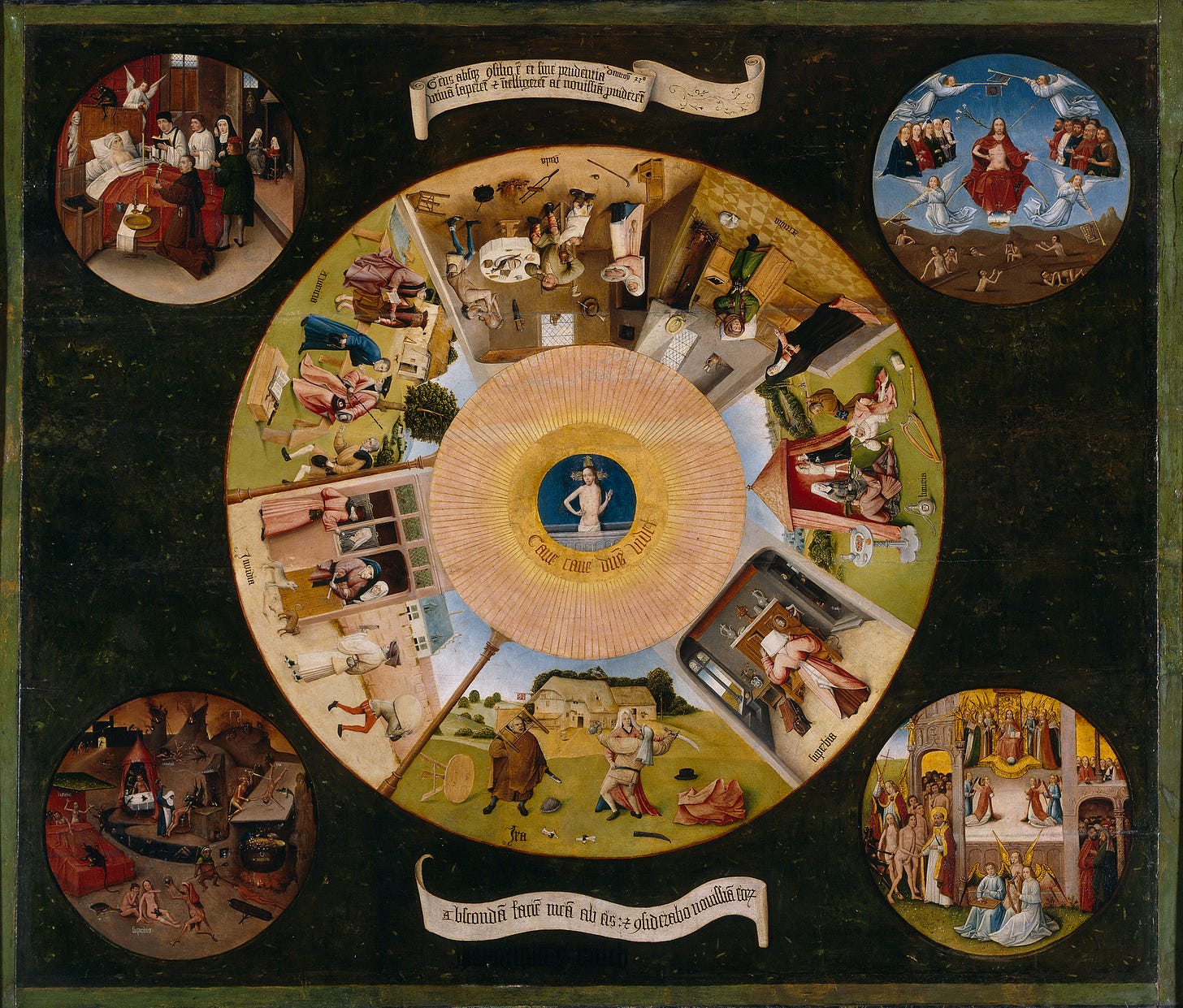The Ancient Demon in Modern Technology
What lurks in our technological progress?
Man praises technology for its mastery over nature—unaware it also masters him. The created makes claims upon its creator. You know your technology is changing you—but amongst these changes an ancient evil goes unnoticed.
Christians, especially the desert fathers, have warned of this demon for centuries.
But you cannot exorcise the demon if you do not know its name and nature. It is a capital vice, a deadly sin, that quietly cools the love in your heart.
Many never know they have slipped into this spiritual slumber, and their hearts are cooled against God and all that is good. It is a spiritual amnesia, a sluggishness of the heart, a heavy pall that smothers your love and identity.
But, if you can cast off this quiet devil, you will be transformed—the fire in your heart will be enkindled and blaze for all that is good.
Reminder: this is a teaser of our members-only deep dives.
To support our mission and get our premium content every week, upgrade for a few dollars per month. You’ll get:
New, full-length articles every Tuesday and Friday
The entire archive of members-only essays
Access to our paid subscriber chat room
An Ancient Greek Tale about Technology
Mankind lived in a cold, bitter darkness. He was a squalid creature that had neither innovation nor civilization. He was without the strength or speed of the other beasts, and he lived a primal life of despair. Humanity’s creator, however, sought to save his creation from the neglect of Zeus, the king of gods and men.
The Titan Prometheus, whose wit rivaled that of Zeus, ascended to Mount Olympus and stole fire. The Titan gave this sacred gift to mankind. With it, man was able to climb out the darkness and into the light of civilizational ascendency. Fire is not simply heat against the cold or light against the darkness, but it allows man to master nature through technology. Within the forges of innovation come metal working, agriculture, warfare, architecture, seafaring, and others. In Aeschylus’ Prometheus Bound, it is said that Prometheus not only gave mankind the gift of fire but then tutored him in all the various arts. Man goes from a miserable creature dominated by the elements to founding great city-states that serve as the pinnacle of his new dominance over nature.
The Promethean fire is an analogue to technology. The word technology comes from techne meaning “art, skill, or craft,” and logos, which is multivalent, but here means the “ordering principle, reason, or study of” a thing. At its heart, technology means the rationale of our crafts, but today it tends to be flattened to denote practical scientific breakthroughs that permit new tools or innovations. Modern man focuses on the techne but neglects the logos—the logic of technology.
You glimpse the logos of technology when you understand that technology makes claims upon who man is. You turn to technology to help you master nature—but you too have a nature, and you too are mastered. Man cannot use technology and remain the same. The Promethean fire transformed man from a miserable creature of darkness to one from which the likes of King David, Achilles, or Aeneas could arise.
Yet, in our age of screens, atomic power, and AI—into what manner of creature is technology now transforming us?
You must understand the dangers of technology to be able to name the demon within—and then how to rid it from your life.
The Open Dangers of Technology
First, technology as a tool of civilizational ascent also bears an element of chaos. Like its analogue, fire, man can quickly lose control of his own technological creations and usher in his own destruction. Our shared cultural imagination has been shaped by series like the Terminator or the Matrix in which man’s creation rebels against its creator. The dangers of man playing the role of creator are expressed well in Mary Shelley’s Frankenstein, which she fittingly called the “the Modern Prometheus.” Prometheus created man—can man now play the role of creator?
Moreover, what if man can control the technology but does so immorally? From an ash tree on Mount Pelion, the great trainer of heroes, the centaur Chiron gave King Peleus a spear of tremendous quality. It was this “Pelian spear” that was inherited by King Peleus’ son, Achilles, who used it in his rage against Troy. The ambit of damage, however, that the exceptional techne of the Pelian spear may cause is limited—even in the hands of Achilles.
What if, however, the rage of Achilles was coupled with atomic power? A mad man who uses a bronze sword for evil may do some damage, but one who misuses atomic power may end humanity. With technological progress has come a slimming of our margin of error—man now has the capacity to end man.
Yet, these dangers are well known—even if mankind do not heed them.
There is, however, a more subtle danger within technology—an ancient demon known best by the Early Church Fathers. Many Christians known this demon, this capital vice, by name—but its true nature and subtle destruction often goes unnoticed. It lurks amongst our technological progress in a quiet but profound way.
It is this demon who is most likely to end our civilization.
Keep reading with a 7-day free trial
Subscribe to The Ascent to keep reading this post and get 7 days of free access to the full post archives.




